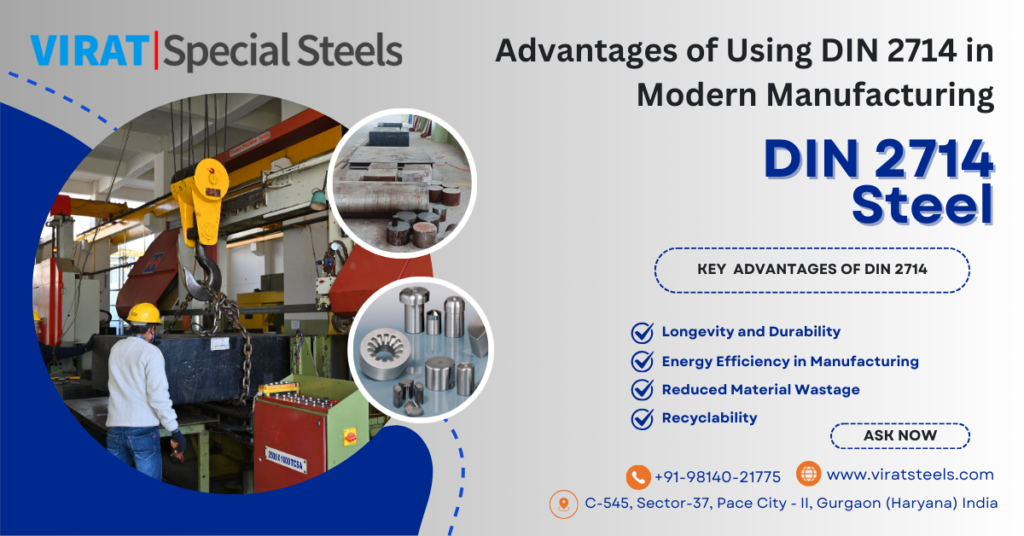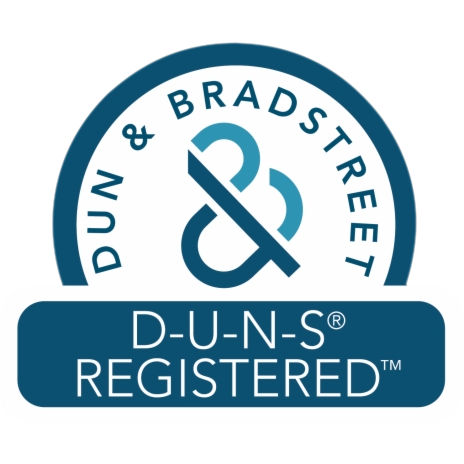DIN 2714 in Modern Manufacturing
now browsing by tag
Advantages of Using DIN 2714 in Modern Manufacturing
In today’s world, where sustainability and environmental responsibility have become global priorities, the manufacturing industry is evolving to adopt greener technologies and practices. A significant contributor to this shift is the strategic use of advanced materials like DIN 2714, which not only enhances performance but also offers considerable environmental benefits.

Understanding DIN 2714
DIN 2714 is a high-quality tool steel known for its excellent toughness, wear resistance, and high strength. It’s widely utilized in the forging and die-making industries to produce components that endure extreme mechanical stress. Its exceptional properties contribute to reduced waste, energy efficiency, and sustainable production processes.
Key Environmental Advantages of DIN 2714
1. Longevity and Durability:
The primary environmental advantage of DIN 2714 is its exceptional durability. Components made from this steel are resilient and maintain their structural integrity even under severe conditions. This reduces the frequency of replacements, leading to decreased consumption of raw materials and reduced waste in manufacturing. By lasting longer, DIN 2714 components contribute to a circular economy, minimizing resource depletion.
2. Energy Efficiency in Manufacturing:
The advanced metallurgical properties of DIN 2714 allow for more efficient manufacturing processes. Its high thermal resistance means fewer energy-intensive treatments are required during production. Furthermore, the improved tool performance reduces the downtime and energy associated with frequent maintenance or replacement.
3. Reduced Material Wastage:
The toughness and precision-forming capabilities of DIN 2714 ensure minimal material wastage during machining and forging operations. Manufacturers benefit from precise tolerances and reduced scrap, directly contributing to environmentally friendly production practices.
4. Recyclability:
Tool steels like DIN 2714 are highly recyclable. End-of-life products made from this steel can be melted and repurposed, conserving natural resources and minimizing the environmental impact of metal extraction. This closed-loop recycling system aligns with the goals of sustainable development and resource optimization.
5. Improved Operational Efficiency:
The enhanced performance characteristics of DIN 2714 lead to reduced machine wear and operational inefficiencies. Machines equipped with DIN 2714 components can operate for extended periods with consistent performance, translating to lower energy consumption and reduced carbon emissions.
Supporting Green Manufacturing Practices:
The use of DIN 2714 in modern manufacturing aligns seamlessly with environmentally conscious practices such as lean manufacturing and green supply chain management. Manufacturers can integrate this material into their operations to meet stringent environmental regulations and standards, such as ISO 14001. Moreover, by choosing materials like DIN 2714, companies demonstrate a commitment to environmental sustainability, bolstering their reputation in an increasingly eco-conscious market.
Conclusion
Incorporating advanced materials like DIN 2714 into modern manufacturing processes is a step forward in achieving sustainability and environmental stewardship. Its longevity, energy efficiency, recyclability, and ability to minimize waste make it a preferred choice for industries striving to reduce their carbon footprint. By adopting DIN 2714, manufacturers not only enhance operational efficiency but also contribute to a greener future for generations to come.
Virat Special Steels is proud to provide premium-grade DIN 2714 tool steel, ensuring both performance excellence and a commitment to environmental sustainability. Let’s work together to build a cleaner, greener industrial landscape.






